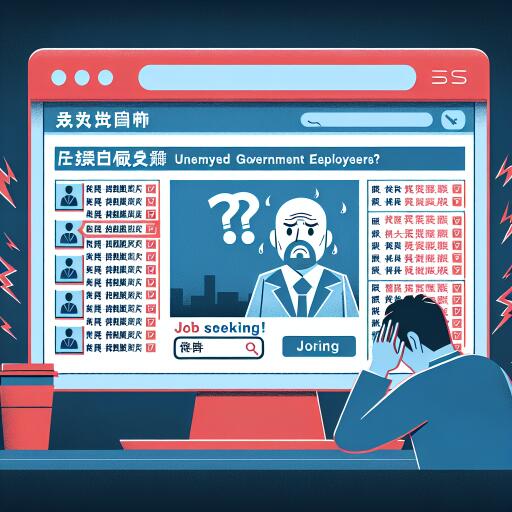Chinese Recruitment Network Targets Laid-Off U.S. Federal Workers: A Covert Operation?
In the backdrop of mounting tensions over alleged espionage activities, a clandestine recruitment network with connections to a Chinese company is reportedly making moves to entice recently dismissed U.S. government employees. These developments come amidst China’s vehement denials, stating that accusations of espionage by the U.S. are baseless.
A notable pattern has emerged indicating attempts to recruit former federal employees by deploying deceptive strategies. Observers suggest that once these individuals are on board, they may be pressured into disclosing sensitive governmental details. This scenario highlights a recurring strategy reminiscent of past efforts attributed to Chinese intelligence activities.
Recent investigative findings reveal startling similarities among various firms placing recruitment advertisements. Evidence suggests that some of these businesses may be masquerading as consulting or headhunting agencies with fictitious facades.
Research has uncovered a concerning trend wherein these firms appear to specifically target former federal employees adversely affected by layoffs. Investigations have identified four specific companies linked through common website designs and shared technical infrastructures—ultimately tied to an enigmatic Chinese internet service provider.
Attempts to probe further into the legitimacy of these firms have resulted in dead ends marked by unanswered communications, non-existent addresses, and the removal of job listings from professional networking platforms. Such actions raise essential questions about the motives and operations of the entities behind this recruitment drive.
A representative for the Chinese Embassy in Washington has dismissed any connection with the reported entities, reiterating China’s commitment to data privacy and security principles. Concurrently, a spokesperson from the White House highlighted ongoing efforts by foreign entities to exploit the inherently open and free system characteristic of the United States, emphasizing the need for vigilance among both current and former government personnel.
A similar scenario unfolded in 2020 when a Singaporean individual admitted guilt in a U.S. legal proceeding for representing foreign interests. This individual operated under the guise of a consulting firm, engaging Americans to draft reports discreetly funneled to Asian clients, eventually tracing back to Chinese intelligence networks. Although China has distanced itself from these accusations, it underscores the persistent tension and mutual mistrust between the two nations.
The complexities and subtleties of espionage underscore the inherent challenges in addressing these transnational dynamics. The current situation accentuates the critical need for increased awareness and protective measures to safeguard sensitive information against covert operations that might exploit vulnerabilities amid economic uncertainties.









